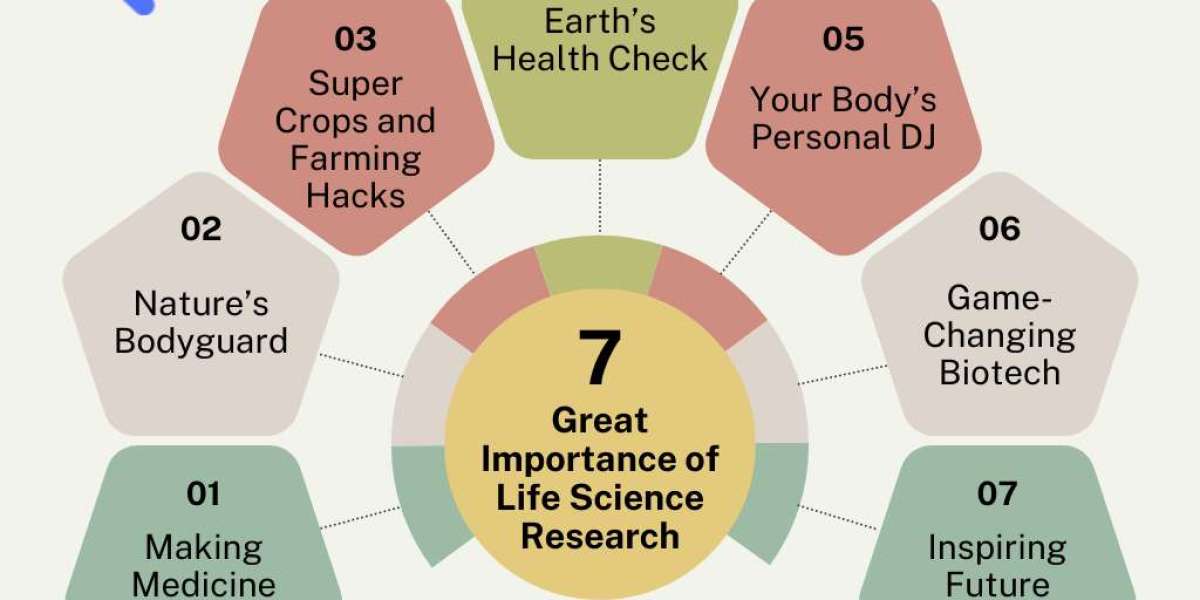Life science research continues to be a catalyst for groundbreaking discoveries that not only revolutionize healthcare but also extend into various facets of our daily lives. This blog explores some of the innovative applications emerging from life science research, showcasing the transformative impact on healthcare practices, environmental sustainability, and the future of technology.
- Precision Agriculture:
Life science research has found a compelling application in agriculture, leading to the emergence of precision agriculture. By leveraging genetic insights and advanced analytics, researchers are developing crops with enhanced resistance to pests, diseases, and environmental stressors. Precision agriculture combines biotechnology and data science to optimize farming practices, ensuring sustainable and efficient food production to meet the demands of a growing global population.
- Biopharmaceuticals and Personalized Medicine:
The pharmaceutical landscape is undergoing a paradigm shift with the advent of biopharmaceuticals and personalized medicine. Life science researchers are pioneering the development of biologically derived drugs that target specific molecules in the body, offering more effective and targeted treatments with fewer side effects. Personalized medicine tailors medical interventions to individual genetic profiles, optimizing treatment plans and improving patient outcomes.
- Environmental Monitoring and Conservation:
Life science research is playing a pivotal role in monitoring and preserving the environment. Through the use of advanced sensors, genomic tools, and ecological studies, researchers can assess biodiversity, track endangered species, and monitor environmental changes. These insights inform conservation strategies, helping to safeguard ecosystems, protect wildlife, and address the impact of climate change on our planet.
- Neuroscience and Brain-Computer Interfaces:
Advancements in neuroscience, fueled by life science research, are leading to innovative technologies like brain-computer interfaces (BCIs). Researchers are exploring the potential of BCIs to enhance communication and mobility for individuals with disabilities. These interfaces allow direct communication between the brain and external devices, opening up new possibilities for restoring lost functionalities and improving the quality of life for those with neurological conditions.
- Synthetic Biology for Sustainable Solutions:
Life science researchers are delving into synthetic biology, a field that combines biology and engineering to design and construct new biological entities. This innovative approach has applications in creating sustainable solutions, such as bio-manufacturing of renewable fuels, biodegradable materials, and environmentally friendly chemicals. Synthetic biology holds the promise of transforming industries and mitigating the environmental impact of traditional manufacturing processes.
- Biomedical Wearables and Remote Patient Monitoring:
The integration of life science research with technology has given rise to biomedical wearables that enable remote patient monitoring. These devices, ranging from smartwatches to wearable biosensors, allow continuous tracking of vital signs, providing real-time health data. Researchers are exploring ways to leverage these wearables for early disease detection, personalized healthcare interventions, and improved management of chronic conditions.
Conclusion:
Life science research continues to be a driving force behind innovations that transcend traditional boundaries, influencing not only healthcare but also agriculture, environmental conservation, and technology. As we witness the transformative applications emerging from these research endeavors, it becomes evident that the intersection of biology, technology, and engineering holds the key to solving some of the most pressing challenges of our time. The ongoing pursuit of knowledge in life sciences promises a future where scientific breakthroughs positively impact the way we live, interact with our environment, and manage our health.







